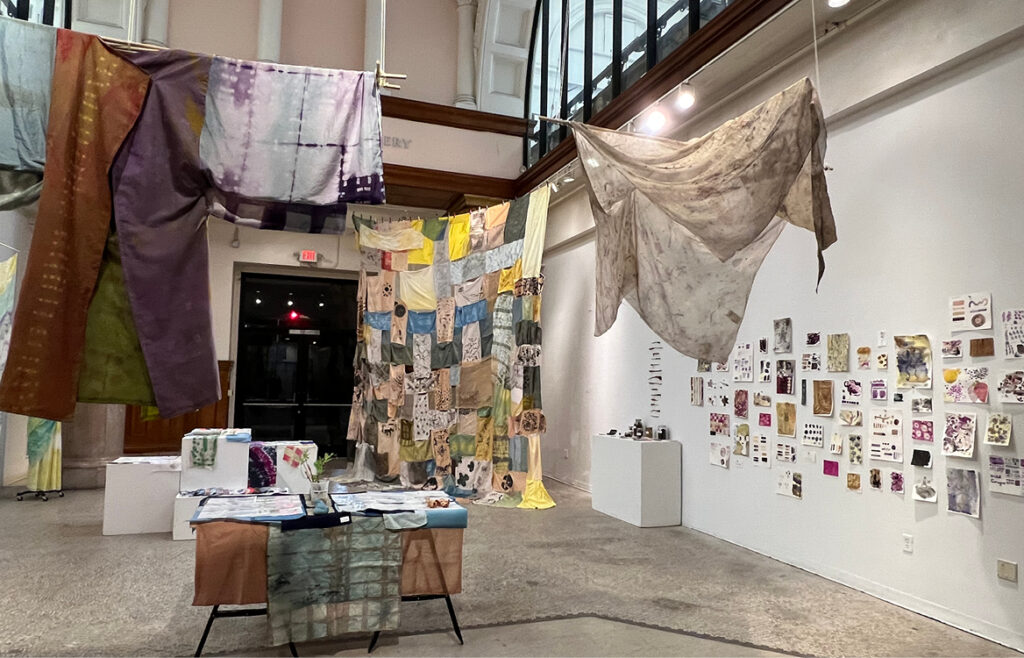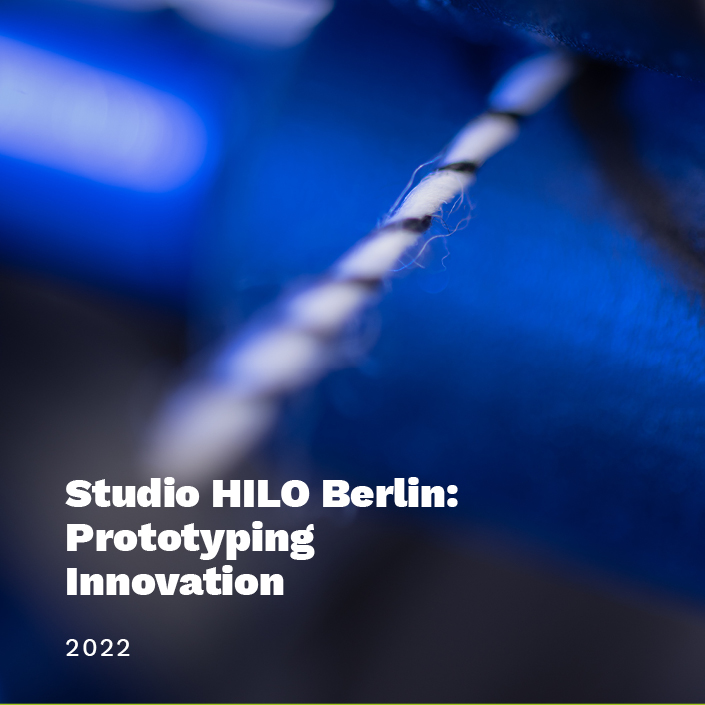2022
13. SYMPOSIUM CORPORATE SOCIAL RESPONSIBILITY IN THE TEXTILE CYLCE: OPEN SOURCES — INTERNATIONAL CYCLES
GREEN CYCLES is a think tank and platform with an annual symposium initiated and developed by professors Renata Brink and Patrick Kugler in the context of HAW HAMBURG – Department Design, focusing on corporate social responsibilities regarding sustainability in the textile cycle. Material, textiles and the garment industries have become increasingly problematic during the 20th Century, when local industries developed into far away global industries with ever decreasing transparency about the growing and making of textile fibers and yarns, the dye processes, the production of cloth and clothes and other textile items, their marketing as well as questions around the end of use time.
Safflower dye time in the Mindful Colors class,MICA, Baltimore, MD, 2022 © Rosa Chang
With GREEN CYCLES as an ongoing narrative, multifold perspectives are opening up debate, research and experiments both in small scale manufacturing and on a larger industry-based scale. Current academic approaches are looking at the inconsistencies between the overt global changes of the environment and the actual clothing habits, which still seem little changed. Notions of more diverse identities and self awareness are challenging new stylistic and aesthetic criteria with potentially impacting on the life span of fashion garments. Second Life concepts aim at further supporting longer life cycles. Through an extended notion of design, with empathy and empowerment at its center, initiatives and start-ups of social, participative or speculative design facilitate a wider and more questioning sense of sustainability and its capacity to make an impact. Design as being potentially innovative is predestined to provide impulses of change.
Liquid Chromatica Group Exhibition, Middendorf Gallery, Maryland Institute College of Art (MICA),Baltimore, MD, 2022, © Rosa Chang
Many initiatives worldwide are researching testing and working with understanding once available knowledge and off ering insights and alternatives – traditionally-based and with future thinking and innovation. Neighborhood projects, like the Baltimore Natural Dye Initiative, are addressing communities as well as professionals embracing historical expertise and building up profound contemporary insights and complex inter-cultural healing potentials. Studio HILO being based in Europe, and thus within a diff erent cultural context, is off erring another distinct focus on sustainable sharing concepts extending these into an open source start-up. Offerring spinning possibilities on a customized manufacturing scale the HILO spinning machine is a prototyping innovation, bridging the gap between enthusiastic hand spinning and industrial hightech possibilities of spinning.






